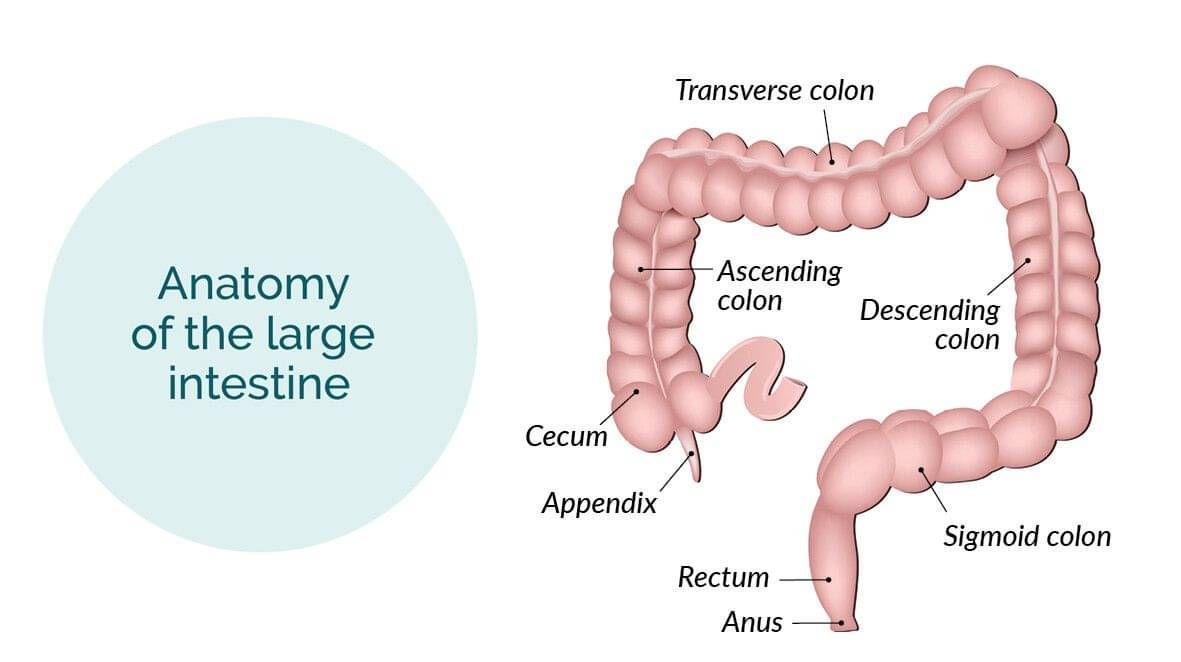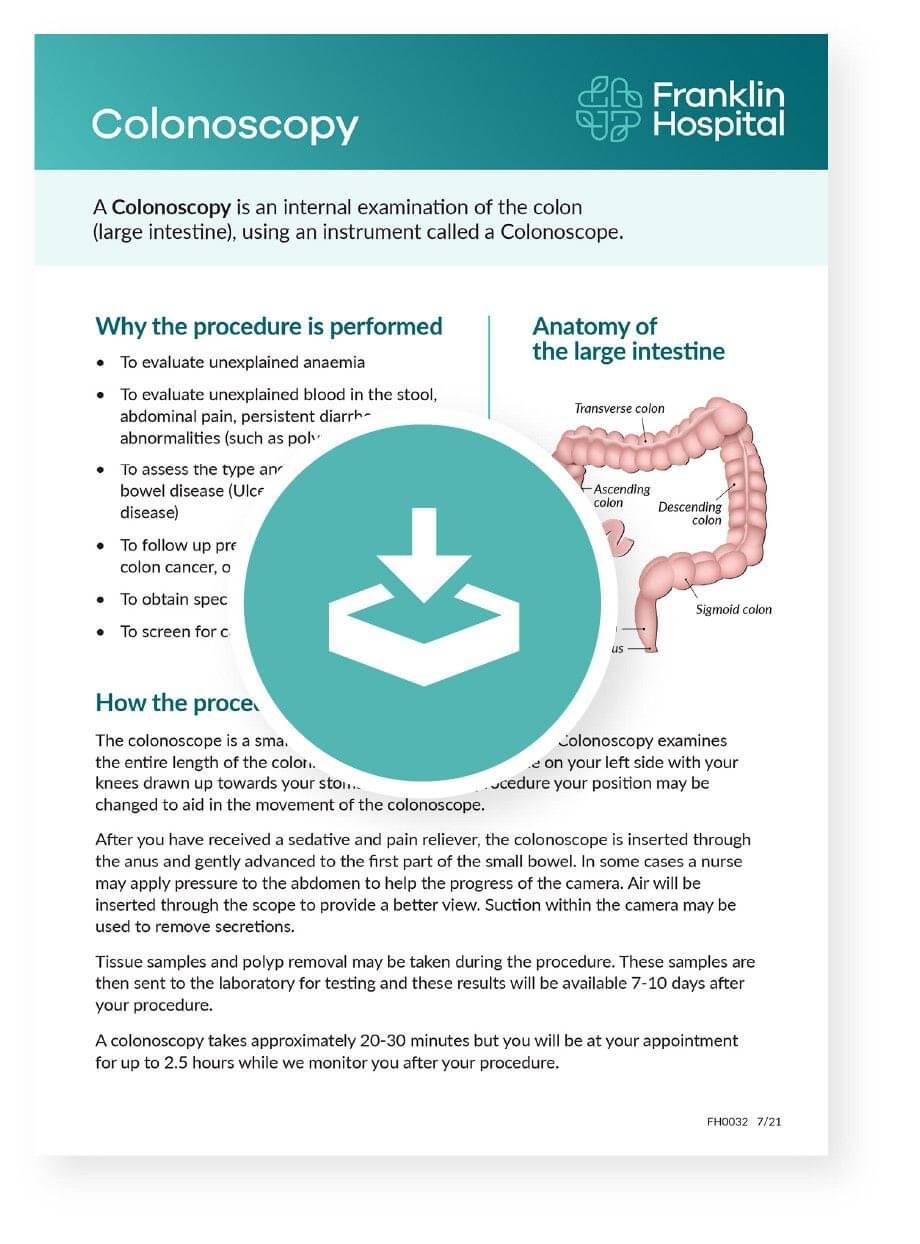Our Procedures
Colonoscopy
A Colonoscopy is an internal examination of the colon (large intestine), using an instrument called a Colonoscope.

Why the procedure is performed
- To evaluate unexplained anaemia
- To evaluate unexplained blood in the stool, abdominal pain, persistent diarrhoea or abnormalities (such as polyps)
- To assess the type and extent of inflammatory bowel disease (Ulcerative Colitis and Crohn’s disease)
- To follow up previous findings of polyps, colon cancer, or a family history of cancer
- To obtain specimen biopsy
- To screen for colorectal cancer
How the procedure is performed
The colonoscope is a small camera attached to a flexible tube. Colonoscopy examines the entire length of the colon. For the procedure, you will lie on your left side with your knees drawn up towards your stomach. During the procedure your position may be changed to aid in the movement of the colonoscope.
After you have received a sedative and pain reliever, the colonoscope is inserted through the anus and gently advanced to the first part of the small bowel. In some cases a nurse may apply pressure to the abdomen to help the progress of the camera. Air will be inserted through the scope to provide a better view. Suction within the camera may be used to remove secretions.
Tissue samples and polyp removal may be taken during the procedure. These samples are then sent to the laboratory for testing and these results will be available 7-10 days after your procedure.
A colonoscopy takes approximately 20-30 minutes but you will be at your appointment for up to 2.5 hours while we monitor you after your procedure.
How to prepare for the procedure
Thorough cleansing of the bowel is mandatory. Instructions for doing this are enclosed in this pack.
Unless otherwise instructed, continue taking any regular medications. Stop taking iron preparations one week prior to the procedure. Iron residue produces a dark black stool, which makes the view inside the bowel less clear.
How the procedure will feel
The sedative and pain medication will provide relaxation and produce a drowsy feeling. This is not a general anaesthetic, you will not be completely asleep for the procedure.
A rectal examination is undertaken to dilate the rectum and make sure there are no major obstructions. You may feel the urge to pass a bowel motion - this is a normal sensation caused as the colonoscope is inserted into the anus.
Mild abdominal cramping and passing of gas may occur during and after the procedure.
Because of the intravenous sedation, you may not feel any discomfort and may have no memory of the procedure.
The risks
- Bowel perforation (hole/tear in the wall of the colon) requiring a repair operation (fewer than 1 out of 1,000 procedures)
- Heavy or persistent bleeding from biopsy or polyp removal sites
- Adverse reaction to sedative medication, causing breathing problems or low blood pressure during the procedure (4 out of 10,000 procedures)








